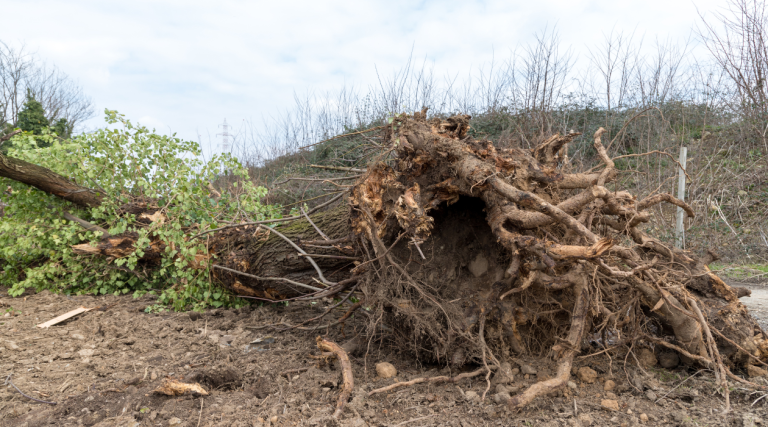Maine loggers applaud latest announcement of federal relief for fishermen and urge similar relief for logging and trucking companies in the United States
AUGUSTA – The Professional Logging Contractors (PLC) of Maine is lauding the announcement of a $527 million federal relief program that could provide $50 million to Maine’s lobster industry and calling for similar relief for the struggling logging industry, which has yet to receive any direct federal aid in 2020. This comes on the heels of a similar announcement on May 7th whereby fishermen were deemed eligible to receive up to $20 million in CARES Act relief due to the impact of COVID-19.
The U.S. Department of Agriculture announced Sept. 9 the creation of a $527 million seafood trade relief program that will pay licensed fishermen a species-specific amount for every pound of fish landed in 2019 to absorb sales declines and increased marketing costs caused by China’s retaliatory tariffs. The individual payout is capped at $250,000. If every pound qualified, Maine lobstermen alone could receive more than $50 million in seafood trade relief.
“As the economic effects of the COVID-19 pandemic and the ongoing trade war continue to hit Maine’s natural resource heritage industries – logging, fishing, and farming – Maine loggers welcome this news of additional relief for Maine fishermen,” Dana Doran, Executive Director of the Professional Logging Contractors of Maine, said. “However, the logging industry has yet to receive any similar aid, and we are hopeful Maine timber harvesters and haulers who are suffering in the current crisis will not be forgotten and that federal aid like that provided to farmers and fishermen will reach our industry before it is too late to save the family businesses and communities that depend on it.”
The U.S. farming industry has received billions in federal aid to offset losses from the U.S.-China Trade War since 2018, and this year received $16 billion more to offset losses from the COVID-19 pandemic. Though loggers are “farmers of the forest” harvesting a renewable crop, they have received nothing to date.
U.S. fishermen have received less federal aid than farmers for trade war and pandemic losses, but still millions more than loggers and timber haulers.
A recent analysis generated for the American Loggers Council (ALC) shows that this year’s decrease in raw wood material consumption has led to a $1.83 billion reduction in the value of logger/trucker-delivered wood. The report, conducted by the analytics firm Forests2Market, found that raw wood material consumption between January-July 2020 was 6.7% less than the same period in 2019 – dropping 21.4 million tons of material. This resulted in a 13% reduction ($1.83 billion) in value of the delivered wood.
Drops in Maine wood exports as a result of the ongoing U.S.-China trade war have impacted Maine loggers since 2018. They have received no aid to offset those losses.
Losses due to the COVID-19 pandemic have been greater – a survey of the membership of the PLC, Maine’s trade association for loggers and forest truckers conducted in May found that 88 percent of respondents had already been negatively impacted by the pandemic. Those impacts included revenue losses, layoffs, loss of clients, reduced productivity, and inability to plan for the future. Many respondents reported experiencing all these effects.
“As time goes on and market impacts continue to mount, it is our prediction that a minimum of 20% of the annual timber harvest will be impacted,” Doran said. “A 20% reduction in timber harvesting means a nearly $86 million direct economic loss for the Maine economy and over 600 jobs eliminated.”
Maine’s story is very consistent with other timber producing states across the country where mills have reduced their consumption of wood during the COVID-19 pandemic as a result of reduced or lost markets. Combined with high operating costs and low returns on investments, this collapse in wood demand threatens the survival of logging and log hauling businesses and means that harvesting capacity throughout the United States could be deeply reduced by this crisis. In Maine, the loss of the Pixelle Specialty Solutions pulp mill in Jay to an explosion this spring has greatly compounded this issue.
While Congress and the USDA have provided relief funding for numerous agricultural categories, they have not yet classified timber within the category that qualifies for COVID-19 assistance, nor has the Trump administration yet offered any direct aid to loggers and timber haulers. Proposed bipartisan logger relief bills endorsed by Maine’s full Congressional delegation and representatives of other logging dependent states have not been acted on. Pleas from state logging associations have so far yielded no aid.
“Time is running out for Maine loggers,” Doran said. “We appeal to our leaders in Washington D.C. to act before it is too late and provide aid to the logging industry while there is still a viable industry to save. Loggers are not asking for anything more than what has already been done for the farming and fishing industries, and it is time they were treated equally.”

